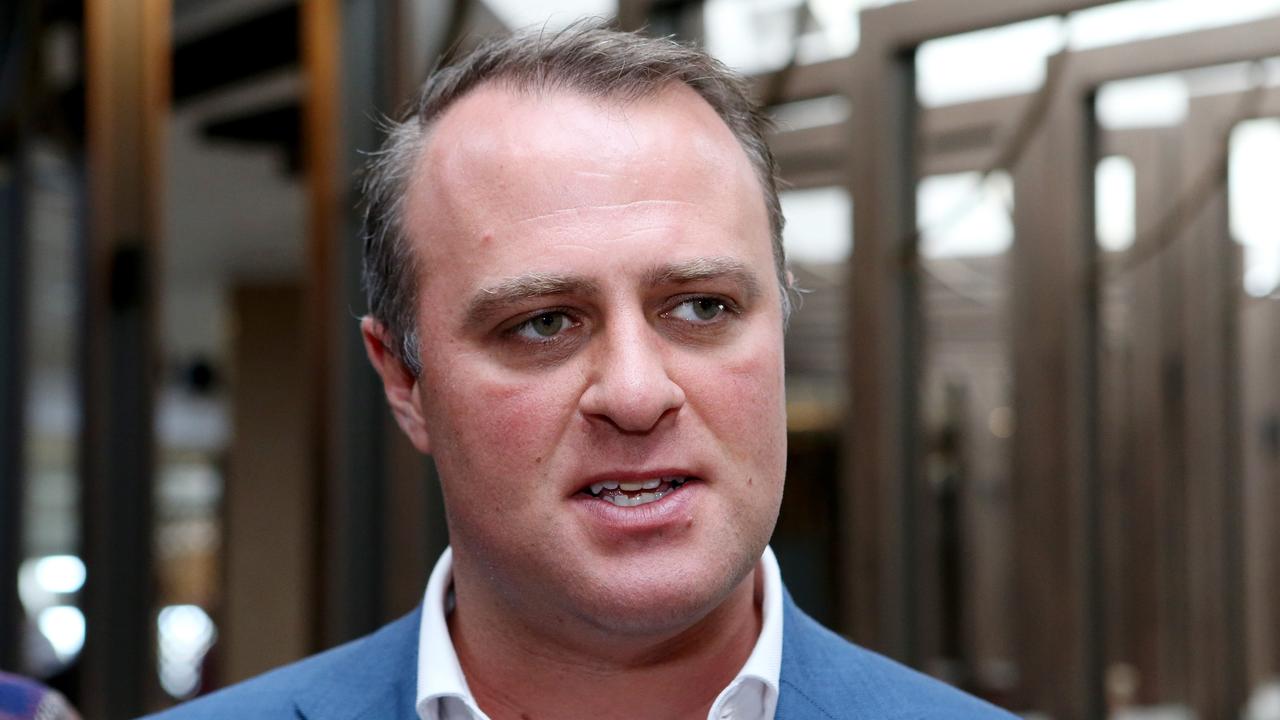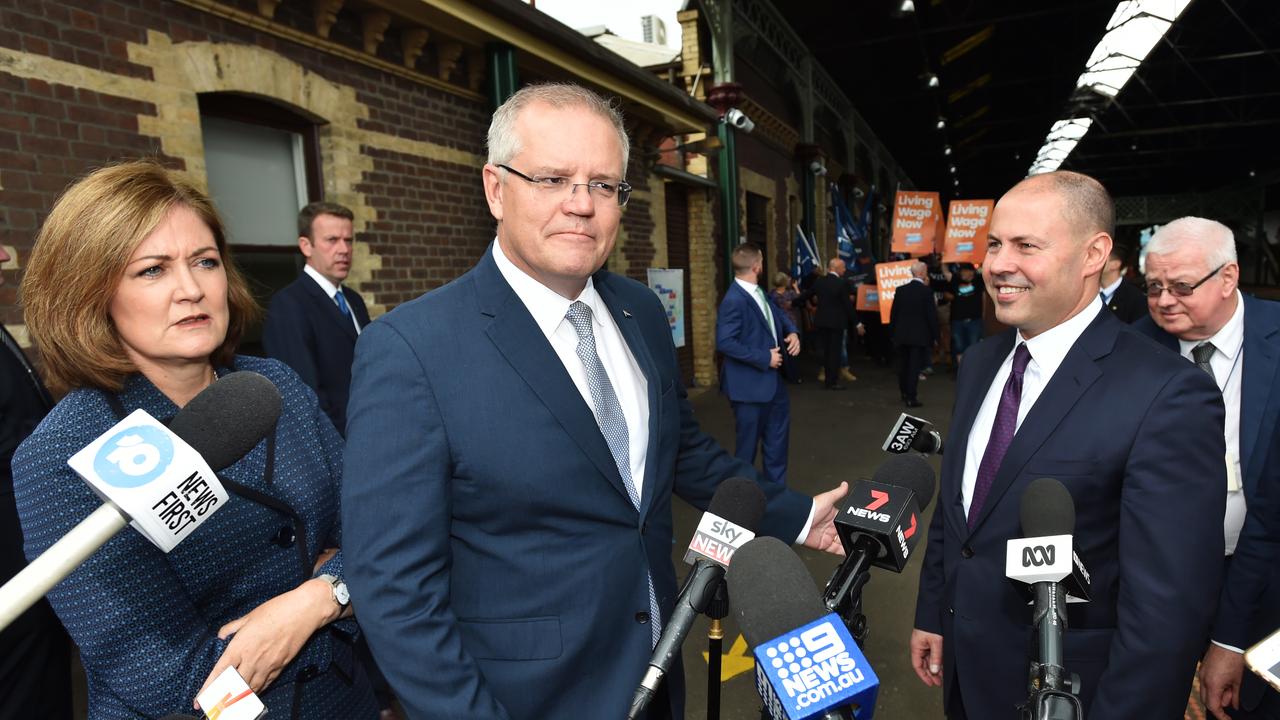Treasury report warns ‘GFC scars’ linger
A Treasury report warns that business is blaming political instability for contributing to an investment slump.

A Treasury report has warned that corporate Australia is blaming a decade of political instability for contributing to an investment slump, as Scott Morrison issues a call for businesses to fuel the new investment boom in the health and education sectors.
A Heads of Treasury report commissioned last year by the Council on Financial Relations reveals the business community is still “scarred” by the global financial crisis a decade on and remains gripped by political uncertainty and high energy prices while suffering from an aversion to risk in boardrooms.
In a speech to the Australian British Chamber of Commerce today, the Treasurer will urge the business community to reverse the inward-looking search for growth through cost savings, which the Treasury report found had been a drag on economic growth.
The report says health and education are becoming the “quarries of tomorrow”.
As corporate leaders yesterday warned the current political instability was also affecting consumer confidence, Mr Morrison will attempt to shift the focus away from what he claims is a “Canberra thought bubble” over the citizenship crisis.
“We set out a clear pathway, and we deliver, without getting distracted by the internal obsessions of the media and the opinions within the Canberra bubble that Australians, frankly, are growing weary of,” he will say in the speech.
“It is no wonder they turn down the sound on Canberra. Australians are more interested in the economic policies of politicians, not their genealogy.”
The Treasury report cites a range of factors contributing to weak business investment that are based on global factors, high hurdle rates for investment lending which were largely out of government control.
“The psychological impacts described as the ‘scars’ of the GFC on business decision-makers, are deeper and more extensive than we had originally expected,’’ the Treasury report says.
But it also canvasses what it claims is sovereign risk over rapidly changing policy and political uncertainty at all levels of government.
“While Australian-based subsidiaries of foreign companies generally shared a view that political and policy uncertainty in Australia compares well to overseas experience, many businesses feel that it is currently elevated in Australia,” the report says.
“The political divide between the commonwealth and state and territory governments and partisan politics were identified as contributing to instability and sovereign risk. Some businesses commented that there appeared to be less regard for election mandates than had historically been the case.
“Concern was raised that there has been a politicisation of debate, which has contributed to policy uncertainty.”
Wesfarmers chief executive Richard Goyder, who is also chairman of the AFL Commission, yesterday told the National Press Club that cases such as the dual citizenship scandal involving Senate President Stephen Parry — and his delay in reporting his situation to the parliament — had an impact on consumer activity.
“I think people would be scratching their heads thinking ‘what’s going on there’ at a time when people feel there are challenges and things need to be done to make their lives better,” Mr Goyder said.
He criticised Mr Parry for delaying an investigation of his citizenship status despite seeing seven other MPs referred to the High Court. He said the drama would have an impact on consumer confidence and reduce trust in the political system.
Major manufacturers and energy companies have repeatedly warned that political paralysis at state and federal level in relation to bipartisan support for energy policy, would have an impact on investment in Australia. The Australian this week revealed a significant international investor had slashed its exposure to Australia on the back of growing political risk.
The $82bn Jupiter Fund Management revealed its Asian Income fund had sold down investments in Australian financial services over concerns with “federal government policies” and the South Australian bank tax.
Mr Morrison in his speech will acknowledge the political instability of the past decade since the Rudd/Gillard era has contributed to damaging investment confidence but cites other factors in the report. It suggests business is increasingly weary and risk-averse due to the rapid rate of technological change and digital disruption.
“Periods of economic and political uncertainty will always play havoc with the investment cycle, and that has certainly played a role in our economy in the last decade,” Mr Morrison will say.
“Thankfully we are rising from this subdued patch. Business investment is showing some credible signs of recovery, with new private business investment expanding by 1.1 per cent in the June quarter, the third consecutive quarterly increase. It is now 1.5 per cent higher through the year, the first positive through the year growth since March 2013.
“Our economy is becoming increasingly dominated by the services industry, thanks to an ageing population, a deepening dependence on education, and increasing household wealth. And that is already starting to be recognised and felt. Investment in the healthcare and social assistance sector is now at its highest share of GDP on record, at almost 0.9 per cent. That upward trend in investment has had a natural flow to the labour market and wages growth, with over 130,000 jobs created in the sector in the last year.”





To join the conversation, please log in. Don't have an account? Register
Join the conversation, you are commenting as Logout